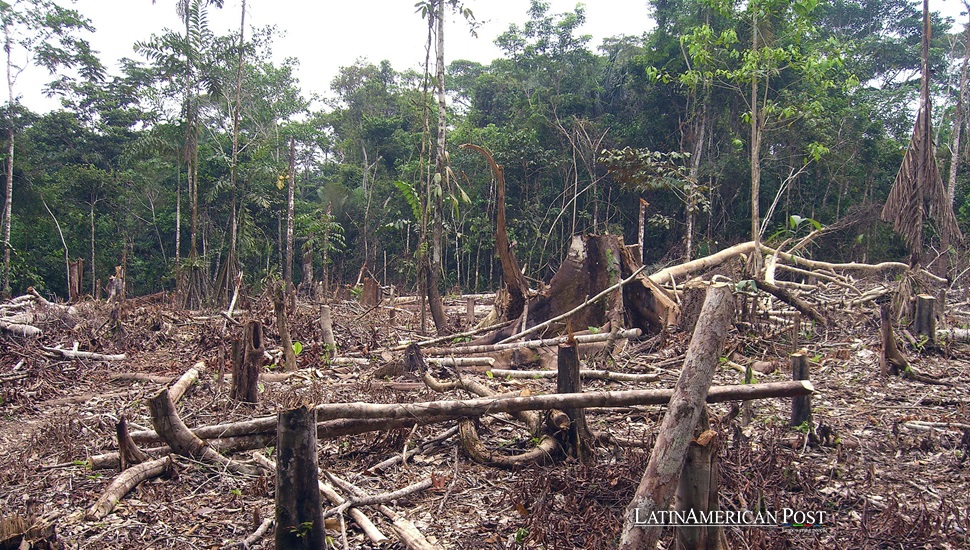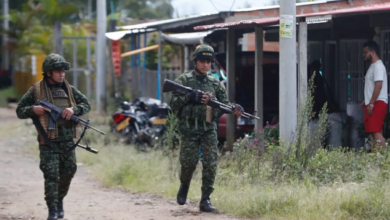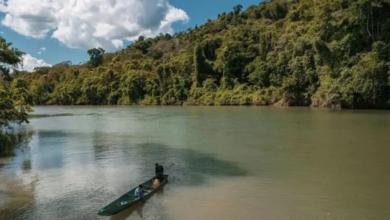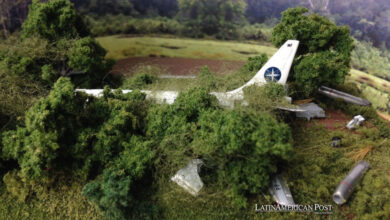Colombia’s Battle Against Deforestation Stalls Due to Armed Groups

Efforts to combat deforestation in Colombia’s Amazon are faltering, with armed groups like FARC dissidents hampering government initiatives. Colombia’s environmental and peace agendas under President Gustavo Petro are at serious risk without regaining control over these regions.
Armed Groups Tighten Control Over Colombia’s Amazon
The Amazon rainforest, a vital part of Colombia’s national identity and global biodiversity, is under siege by armed groups, primarily FARC dissidents. These groups have steadily gained control over vast portions of the Amazon, significantly undermining government efforts to reduce deforestation. According to a recent report by the International Crisis Group, the Revolutionary Armed Forces of Colombia (FARC) dissidents—also known as the EMC—are at the heart of this crisis, wielding substantial influence over the region’s environmental fate.
Since the peace agreement between the FARC and the Colombian government in 2016, many dissidents have refused to disarm and continued their activities in areas long neglected by state authority. They have become one of the main obstacles to environmental preservation in Colombia’s Amazon, tightening their grip on the region and, in some cases, controlling deforestation rates at will. As the report points out, the EMC can dictate when and where deforestation occurs, using it for financial gain through extortion and exploitation of natural resources.
Colombia’s Amazon covers over 40% of the country’s territory—an area roughly the size of Spain—and is home to unparalleled biodiversity. Despite its ecological significance, 15% of the Colombian Amazon has already been deforested. The actions of armed groups in the region exacerbate the environmental crisis, undermining President Gustavo Petro’s efforts to reduce deforestation and protect these vital ecosystems.
The Role of the EMC in Escalating Deforestation
The EMC, now Colombia’s third-largest armed group with around 3,500 members, has a complex relationship with deforestation. This group is the most directly responsible for deforestation in the last five years. Over half a million hectares of forest have been lost in EMC-controlled zones, further complicating efforts to curb environmental destruction.
The EMC’s influence over deforestation is both alarming and strategic. In some instances, they have instructed local communities to stop deforestation, only to reverse these orders later when financial pressures mount. In early 2023, the group lifted restrictions on deforestation to increase its revenue from illegal logging, charging extortion fees to those cutting down trees. This manipulation of environmental degradation for profit demonstrates the group’s ability to control and exploit the region’s resources, all while making a mockery of government initiatives aimed at preserving the Amazon.
The EMC’s involvement in deforestation is not just a local issue; it has global implications. The Amazon is a critical carbon sink and is pivotal in mitigating climate change. As the EMC accelerates deforestation, the ripple effects are felt far beyond Colombia’s borders. Yet, as long as the group maintains its grip on these territories, the government’s ability to implement effective conservation strategies remains severely limited.
Gustavo Petro’s Struggles to Implement Environmental Policies
Gustavo Petro, Colombia’s first leftist president, campaigned on a platform of environmental protection and peacebuilding. His administration has made combating deforestation in the Amazon one of its central priorities, announcing a historic 61% reduction in deforestation over the past two years. However, these achievements are overshadowed by the reality on the ground, where armed groups like the EMC undermine state authority and make it nearly impossible to enforce environmental policies.
Petro’s approach to combating deforestation has differed from his predecessors. Instead of punitive measures against communities involved in illegal logging, Petro has offered incentives such as financial aid for forest conservation and sustainable livelihoods. The goal is to build a development model that benefits Amazonian communities while protecting the forest. However, The lack of territorial control hampers the implementation of these projects, as armed groups dominate the region.
Without access to EMC-controlled territories, government programs that aim to protect the Amazon and support local communities remain primarily theoretical. The Colombian state’s absence from these regions gives armed groups free rein to dictate how the land is used, making it difficult for Petro’s administration to achieve its long-term environmental goals. This situation threatens not only the Amazon but also Petro’s political legacy, which hinges on his ability to balance peace and ecological sustainability.
What Needs to Change for Colombia to Save the Amazon?
If President Gustavo Petro’s administration is serious about protecting the Amazon and fulfilling its environmental promises, it must first regain control of the areas currently dominated by the EMC. As the Crisis Group’s report suggests, dialogue with the EMC has been fraught with difficulties, and the group has repeatedly violated ceasefire agreements and blocked state agencies from entering the territories they control. These regions, which include national parks and protected areas, remain off-limits to government authorities, making it impossible to enforce conservation measures or promote sustainable development.
Regaining territorial control, however, is easier said than done. The Colombian state has historically struggled to establish a lasting presence in remote areas like the Amazon, where armed groups and illegal economies thrive. But without direct intervention, efforts to curb deforestation will continue to lag, and the Amazon will suffer further degradation. To protect the region, Colombia’s government must find a way to reassert its authority and dismantle the power of armed groups like the EMC.
This will require military and law enforcement interventions and more robust community engagement. Communities living under EMC rule are often forced to comply with the group’s deforestation schemes or face severe consequences. Providing these communities with viable alternatives and better protection from armed groups is critical to turning the tide in favor of sustainable development.
Ultimately, the fight to save the Amazon is about more than just environmental protection—it’s about restoring peace and stability to one of the world’s most ecologically and socially vulnerable regions. As long as armed groups continue to dominate these areas, Colombia’s efforts to combat deforestation will remain an uphill battle. President Petro’s administration must prioritize regaining control of Amazon in the hope that it will leave a lasting environmental and political legacy.
Also read: Christopher Columbus Did Bring Enlightenment to the Americas
Colombia’s efforts to combat deforestation in the Amazon are being undermined by armed groups like the EMC, whose control over the region stalls government initiatives and accelerates environmental destruction. To protect the Amazon and the communities that depend on it, Colombia must first reclaim these territories and dismantle the power structures that allow armed groups to profit from deforestation. Without addressing this fundamental issue, the country’s environmental policies will continue to fall short, and Amazon’s future will remain in jeopardy.





